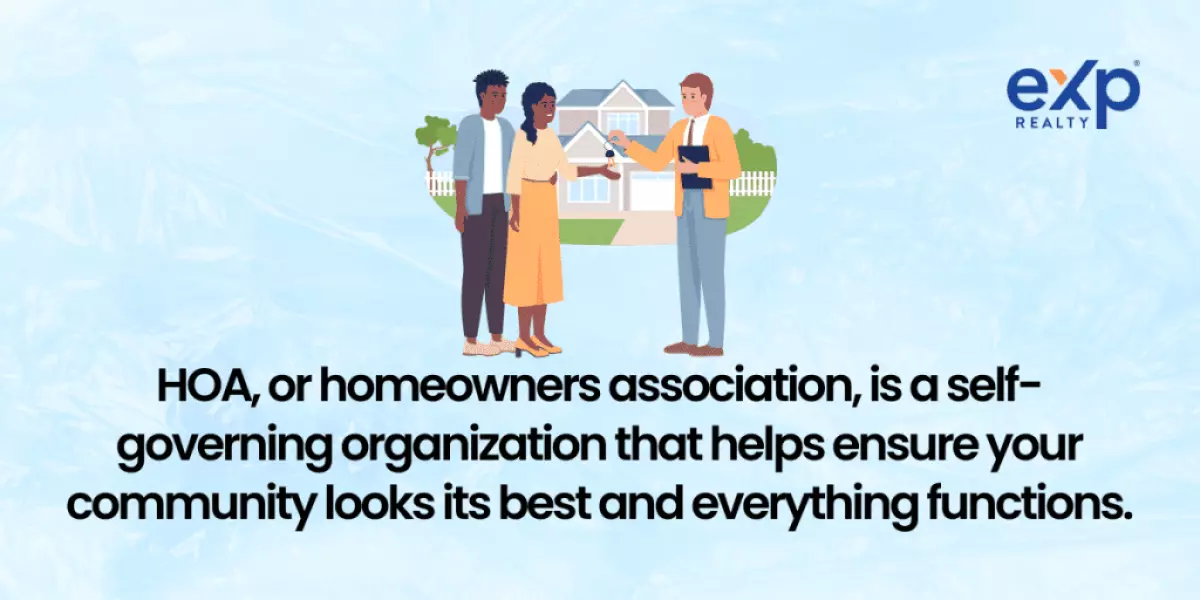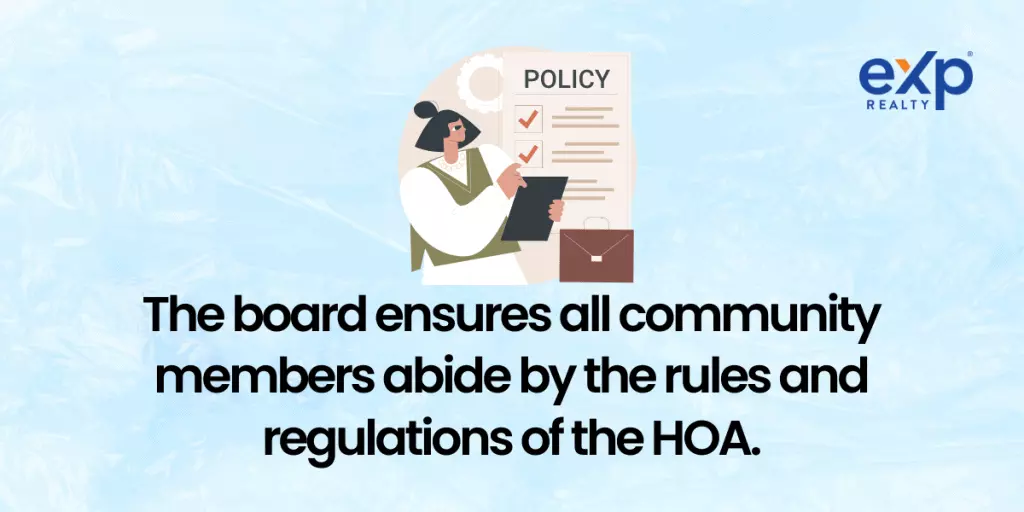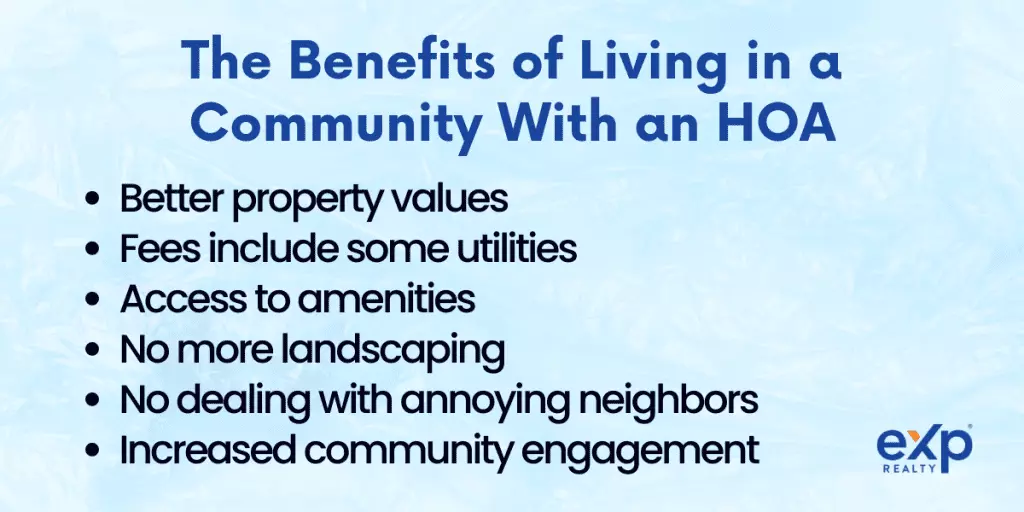Owning a home comes with many factors to consider, and one important aspect to evaluate is whether the property is part of a homeowners’ association (HOA). Understanding the HOA meaning, its members, rules, and benefits is crucial in making an informed decision about whether an HOA-run community is the right choice for you.
What is a Homeowners Association (HOA)?
 Picture source: sanaulac.vn
Picture source: sanaulac.vn
A homeowners association (HOA) is a self-governing organization within a community that shares a common interest. Homeowners in these areas pay set fees for the maintenance of the neighborhood and their units. The HOA is overseen by volunteer resident homeowners elected to a board of directors.
While an HOA regulates certain aspects of home ownership, the fees paid for the improvement of the neighborhood can be worth the admission cost. However, if you prefer having the final say in what you can do to your property, it might be in your best interest to avoid HOA-run communities.
Understanding the Role of an HOA in Managing Communities
Homeowners associations have several key responsibilities:
- Managing shared or common property in the community
- Protecting property values
- Providing services to residents
- Developing a sense of community through amenities and social activities
HOAs exist due to federal, state, and local laws that help form them. The association's governing documents and Covenants, Conditions, and Restrictions (CC&R) outline the roles and responsibilities of the association and its board members.
The duties of an HOA include overseeing amenities and common area maintenance, collecting dues, paying ongoing expenses, providing shared services, enforcing governing documents, and saving for capital expenditures and components.
The Role of the HOA Board of Directors
 Picture source: sanaulac.vn
Picture source: sanaulac.vn
The HOA board consists of individuals elected by the residents of the community to run the association. The number of board members ranges from three to seven, as determined by the association's bylaws.
The four core members of the board and their responsibilities are as follows:
President
The president is the leader of the HOA board and represents the community. They work closely with board members, vendors, homeowners, and HOA managers. The president's responsibilities include presiding over board meetings, facilitating decision-making processes, serving as the HOA spokesperson, and signing checks, contracts, and other legal documents.
Vice President
The vice president takes charge in the absence of the president. They work closely with the president and assume their responsibilities when necessary. In some associations, the vice president also has additional duties, such as heading an architectural review committee or a maintenance committee.
Secretary
The secretary plays an integral role in the HOA leadership structure. Their responsibilities include creating board meeting agendas, recording meeting minutes, ensuring quorum during meetings, sending out meeting notices, ensuring compliance with governing documents, maintaining critical documents, and storing records of homeowners and maintenance.
Treasurer
The treasurer oversees the financial operations of the association. Their responsibilities include developing budgets, monitoring income and expenses, issuing payments to vendors, collecting assessments, preparing financial reports, conducting audits, and serving as the head of the finance committee.
The HOA board also has various other duties, including ensuring compliance with laws and governing documents, maintaining common areas, enforcing rules and regulations, resolving conflicts, and managing the association's finances.
Legal Duties of HOA Board Members
HOA board members have legal duties based on state corporate laws. Most associations are not-for-profit corporations and file articles of incorporation in their home state. Board members serve in positions of trust and must act in the best interests of the HOA, even as volunteers.
The basic legal duties of the board are as follows:
Duty of Care
Board members must make informed decisions, which requires research and understanding the governing documents and relevant information. They must be reasonable, use sound judgment, and avoid arbitrary actions.
Duty of Loyalty
Board members must act fairly for the benefit and interest of the HOA. They should not make decisions based on personal gain or interest and avoid conflicts of interest. They must also protect member confidentiality.
Duty to Act
The HOA board must perform its duties within the authority granted by state law obligations and governing documents.
Homeowners Association Rules
Breaking HOA rules can result in notices or fines. Each association has different procedures for dealing with violations, ranging from warning letters to fines.
It's important to remember that HOA rules are legally binding, and homeowners agree to abide by them when signing a membership form. Local police typically do not enforce specific HOA bylaws, but civil courts can intervene in cases of infringements, which may result in monetary penalties.
Before purchasing a home in an HOA community, research the regulations and restrictions to ensure you are comfortable with the rules and additional home costs. While specifics vary for each HOA, common rules include paying annual assessments, maintaining property appearance, restrictions on rentals, landscaping guidelines, vehicle regulations, pet rules, and guidelines for trash disposal and holiday decorations.
The Benefits of Living in an HOA Community
 Picture source: sanaulac.vn
Picture source: sanaulac.vn
Living in an HOA community offers several benefits for homeowners and tenants, including:
Better Property Values
HOAs strive to maintain and increase property values. They control the aesthetic appeal and consistency of the neighborhood, ensuring that it remains attractive and desirable, thus positively impacting property values.
Fees Include Some Utilities
Many HOAs include certain utilities, such as trash, gas, recycling, and water, as part of the monthly dues. This simplifies utility management for homeowners.
Access to Amenities
HOA communities often offer a range of amenities, such as pools, parks, and playgrounds. These amenities are well-maintained, less crowded, safer, and exclusive to residents, enhancing the overall quality of life within the community.
No Landscaping Responsibilities
HOAs typically handle the landscaping and maintenance of common areas, saving homeowners from the hassle of yard work and ensuring the neighborhood looks its best.
Dispute Resolution
HOAs provide a structured way to resolve conflicts and disputes between neighbors. They enforce regulations and mediate to maintain peace and order within the community.
Increased Community Engagement
Living in an HOA community fosters a sense of community and provides opportunities for social interaction through events and activities. Residents have the chance to meet their neighbors and build connections.
The Potential Drawbacks of Living in an HOA Community
While HOAs offer numerous benefits, there are potential drawbacks to consider:
High Fees
HOA fees can be high, depending on the community and its amenities. It's essential to understand the fee structure and assess whether it fits within your budget. Failure to pay HOA fees can lead to fines and other repercussions.
Restrictions on Home Customization Options
HOAs often have strict rules and regulations regarding home customization. These restrictions can limit your ability to modify the appearance or features of your property, which may not align with your preferences.
Violations and Fines
Failure to comply with HOA rules can result in fines. Violations may lead to warnings, followed by escalating fines for repeated or serious offenses.
Paying for Unused Amenities
Homeowners must pay for amenities and services provided by the HOA, regardless of whether they use them. This can feel burdensome for individuals who do not utilize certain facilities regularly.
Risk of Lien or Foreclosure
If homeowners repeatedly fail to pay fines or regular fees, the HOA has the authority to place a lien on the property and, in extreme cases, initiate foreclosure proceedings. It's important to meet financial obligations to avoid such consequences.
Poor Management
Inefficient management by the HOA board can lead to problems within the community. Lack of communication, low-quality services, and issues with bookkeeping and compliance can create frustrations for homeowners.
Tips for Homeowners in HOA Communities
To make the most of living in an HOA community, consider the following tips:
Establish a Point of Contact
Get to know the board of directors or property management company to have a reliable point of contact for any questions or concerns.
Read the Governing Documents
Familiarize yourself with the community's rules and regulations by reading the governing documents. Seek clarification from the HOA if necessary.
Familiarize Yourself with the Surroundings
Explore the amenities and resources offered by the HOA. Obtain access cards or keys to facilities, even if you don't plan to use them immediately.
Understand the Fees
Ask the HOA representative about the fees, how they are determined, and the history of fee increases. Know what the monthly dues cover, including any additional services or utilities.
Pay Fees on Time
Ensure timely payment of fees to avoid potential fines and conflicts. If needed, ask for a variance or review your legal rights to address concerns.
Be a Good Neighbor
Comply with community rules and regulations, and maintain open lines of communication with your neighbors. Participate in HOA-sponsored activities to foster a sense of community.
Attend Meetings and Events
Attend annual meetings and community social events to stay informed about community matters and connect with fellow homeowners.
Stay Updated via Community Emails
Subscribe to HOA community emails to receive important updates, meeting notices, and safety information.
Get Involved and Volunteer
Consider volunteering or running for a position on the HOA board to contribute to the community and influence policies that align with homeowner expectations.
Key Takeaways
Understanding the role and impact of an HOA is crucial when purchasing a home. HOAs play a vital role in maintaining and improving neighborhoods, but their rules and fees should be carefully considered. An HOA can positively affect property values, provide amenities and services, and promote a sense of community. However, high fees, restrictions on customization, violations and fines, paying for unused amenities, liens, foreclosure risks, and poor management are potential drawbacks to be aware of.
By following the tips mentioned above and actively engaging with the HOA and your neighbors, you can make the most of living in an HOA community and enjoy the benefits it offers.
FAQs
Here are some commonly asked questions about homeowners associations:
What does HOA mean in real estate?
HOA stands for homeowners association. It is a private organization that manages certain residential communities, sets rules and regulations, and ensures the maintenance and management of shared resources and amenities.
Why is it called an HOA?
The term HOA refers to the organization responsible for governing and managing a planned subdivision or condominium community. The association's name reflects its purpose and authority.
What are the disadvantages of having an HOA?
Disadvantages of HOA living include association fees, strict rules and regulations, adherence to governing documents, restrictions on renovations and improvements, and potential fines for violations.
What exactly is a homeowners association in the USA?
In the USA, a homeowners association is a group of residents governing a specific neighborhood or multi-unit building. The association establishes and enforces rules, manages resources and amenities, and promotes a sense of community.
Does local law supersede HOA rules?
Local laws can sometimes supersede certain HOA rules, but this can vary depending on the jurisdiction and specific circumstances. Consulting with a local real estate agent or attorney can provide more accurate information.
Where can I find a real estate agent to answer my questions about HOAs near me?
You can search for a local real estate agent near you through eXp Realty's website (https://exprealty.com/agents).
How can I receive alerts for homes for sale near me?
To receive alerts for homes for sale near you, you can perform a search on the eXp Realty website (https://exprealty.com/properties/) and sign up for instant, daily, weekly, or monthly email notifications.
Remember, understanding the implications of an HOA and its regulations is essential when considering purchasing a home in an HOA community.

















